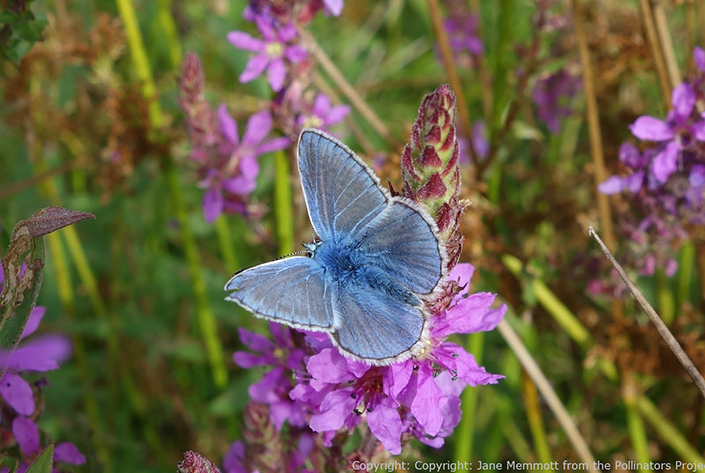The Common Blue butterfly is a pollinator that plays a vital role in maintaining food supplies but it is struggling in the UK countryside.
While environmental fundraising corporations try to spin bee numbers to create concern among the public about modern neonicotinoid pesticides, what gets no attention is that 98% of the country's flower-rich meadows have been lost since the end of the Second World War.
Yet apples, strawberries, raspberries, beans and tomatoes are all reliant on insect pollinators like butterflies. Globally, crop pollination services are estimated to be worth $153 billion per year. Understanding the influences that the landscape and other environmental factors can have on our pollinators is therefore of huge importance.

Common Blue butterfly (male) on purple Losestri. Credit: Jane Memmott, The Pollinators Project.
Gardens, allotments and other flower-rich habitats in urban areas could provide a haven for these important insects, according to the Urban Pollinators Project, led by scientists at the University of Bristol, which is studying how effective our towns and cities are for pollinators.
In Bristol, Leeds, Reading and Edinburgh, city-wide surveys of pollinators, together with 60 pollen- and nectar-rich flowering meadows are helping our pollinators flourish. In recent years, sowing seed mixes containing beneficial flowers for insect pollinators has become increasingly popular in urban areas across the UK. For example, in Gloucester and Stroud the Bee Guardian Foundation are working in partnership with local councils to convert green areas, such as road verges and parks, into bee-friendly habitat. In Gloucester the project has replaced 10,000 m2 of bedding plants with perennial herbaceous species and created wildflower meadows.
Source: Biotechnology and Biological Sciences Research Council